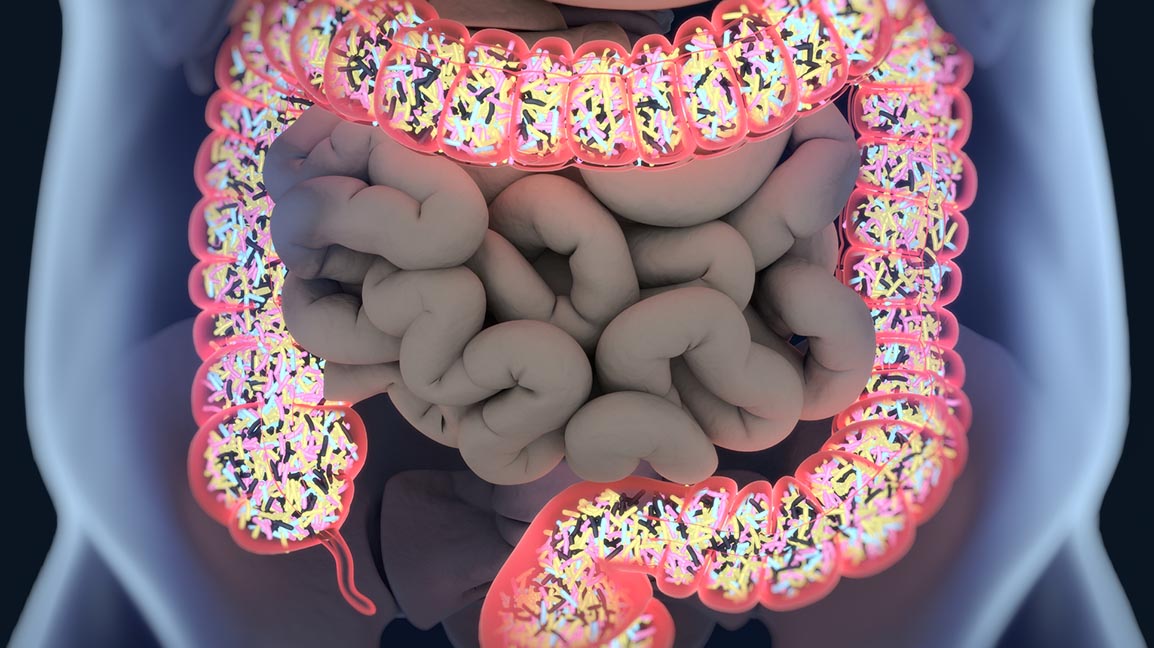You can pooh-pooh it all you want, but let’s just get the ick factor out of the way.
A fecal microbiota transplant may sound gross, but the relatively new procedure is drastically improving lives and, in some instances, saving them.
The procedure takes the collected stool from a certified stool bank – just like a blood bank – and transplants it into the colon of a patient with recurrent Clostridium difficile, more commonly referred to as C. diff. The condition can cause diarrhea leading to life-threatening dehydration and electrolyte abnormalities.
Dr. Christopher Bach, a fellowship-trained gastroenterologist with Tidelands Health Gastroenterology, touts a near 100 percent success rate overcoming C. diff among patients who have undergone a fecal microbiota transplant. Dr. Bach has performed dozens of the transplants.
“It is pretty revolutionary,” Dr. Bach says. “I realize it’s disgusting for a lot of people to even think about, but this is how we are trying to stamp out disease and it’s a good way to do it with very little, if any, side effects and a huge improvement in quality of life.”
Dr. Bach explains that the transplant is repopulating the colon with bacteria.
“We actually normalize the patient’s colon with the flora that’s supposed to be there,” he says.
C. diff is typically a complication of antibiotic use. Although antibiotics are routinely used to treat infections, they can, on occasion, lead to problems. Antibiotics are used to fight bacteria, but, in the process, they can destroy “good” bacteria that lives inside a person’s gut.
Once an antibiotic treatment is complete, most people’s bodies can re-establish the proper balance of the gut’s trillions of bacterial cells. Some patients, however, are unable to do so, leaving them vulnerable to a C. diff infection, which can cause aggressive diarrhea, abdominal cramping and fever.
Some patients will have loose stools 10-20 times per day, Dr. Bach says, making it difficult to lead a normal lifestyle.
“In our gut we actually have more bacteria cells than we do human cells,” Dr. Bach says. “That bacteria plays a critical role in how we digest our food.
“Only recently have we had the technology to map out bacteria that live in our gut. We are learning more that bacteria may play a role in obesity, in the development of stomach cancer, esophageal cancer and irritable bowel syndrome. And that disruptions in their balance with antibiotics can lead to C. diff.”
More than 500,000 people a year develop C. diff.
A stool transplant of a half-liter of stool delivered by colonoscopy is the most effective treatment for a recurrent C. diff infection. It’s like laying down sod after losing your lawn of good bacteria.
“There’s no way to synthesize the diversity of bacteria that a normal gut has, so the only way to get the correct balance is by getting it from someone else,” Dr. Bach says.
Transplants have been taking place for about 10 years, but have become more prevalent over the last five years. Dr. Bach has been doing the procedure for the past four years.
Originally, stool was collected from family members, but now the transplant is a mixture from several donors, all of whom have been screened for HIV, hepatitis, diabetes and other diseases.
Dr. Bach admits patients are often surprised when told about the procedure.
“But these people are truly suffering with having diarrhea 10, 14, even 20 times a day and can’t even leave their house,” he says. “It’s had such an effect on the quality of their life that to be told with one treatment this could all end, they are certainly open to it. It can be life-changing for someone who has recurrent infections from C. diff.”
Dr. Bach says a second transplant is occasionally, but rarely, needed to completely eliminate C. diff.
“Originally, there was a lot of fear about putting stool from one person to another and what it might transmit,” he says, “but with proper screenings and the more we understood about the unique bacteria balance in the gut, we’ve been able to completely change people’s health and lives.”
Dr. Bach calls it “repoopulating” the colon.
Fecal transplants may one day play a role in treating Crohn’s disease, irritable bowel syndrome, diabetes and more, he says.
“The potential is exciting,” Dr. Bach says. “It’s fascinating, and a new weapon in our arsenal to fight diseases.”
